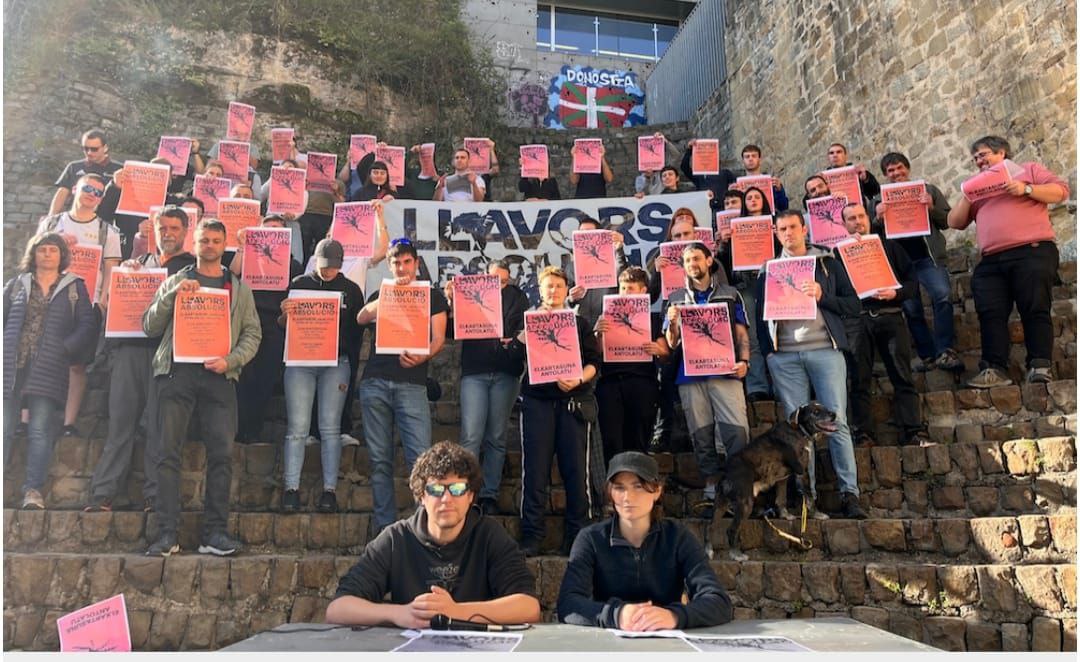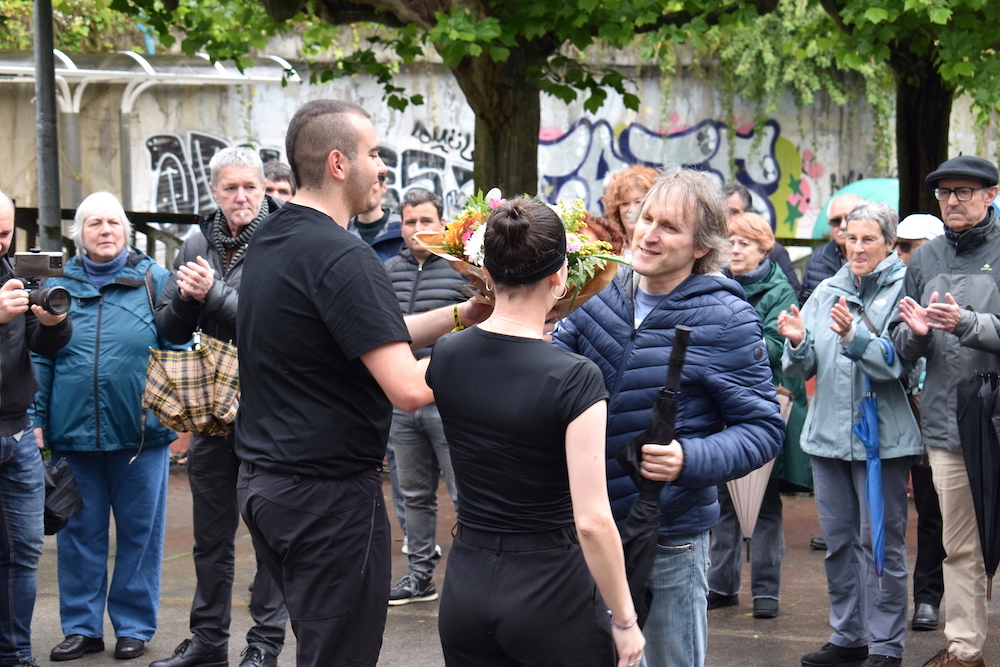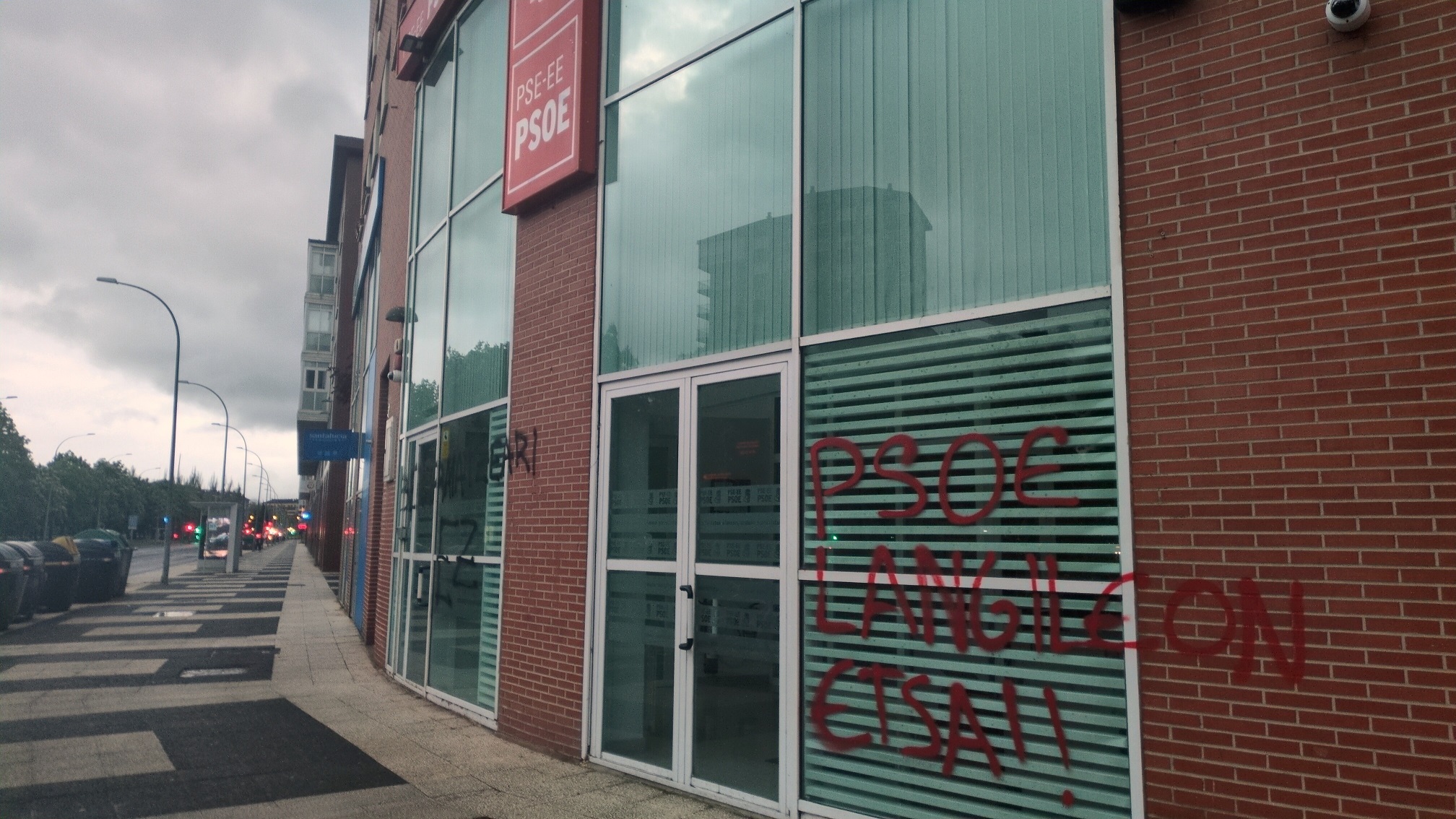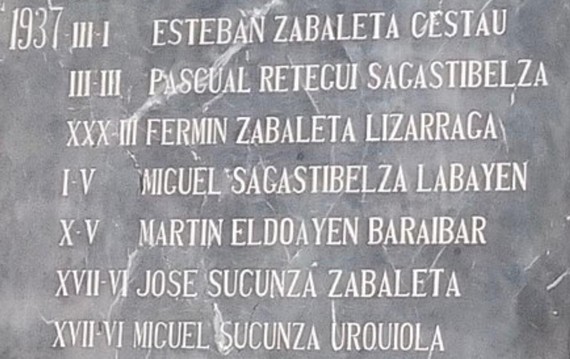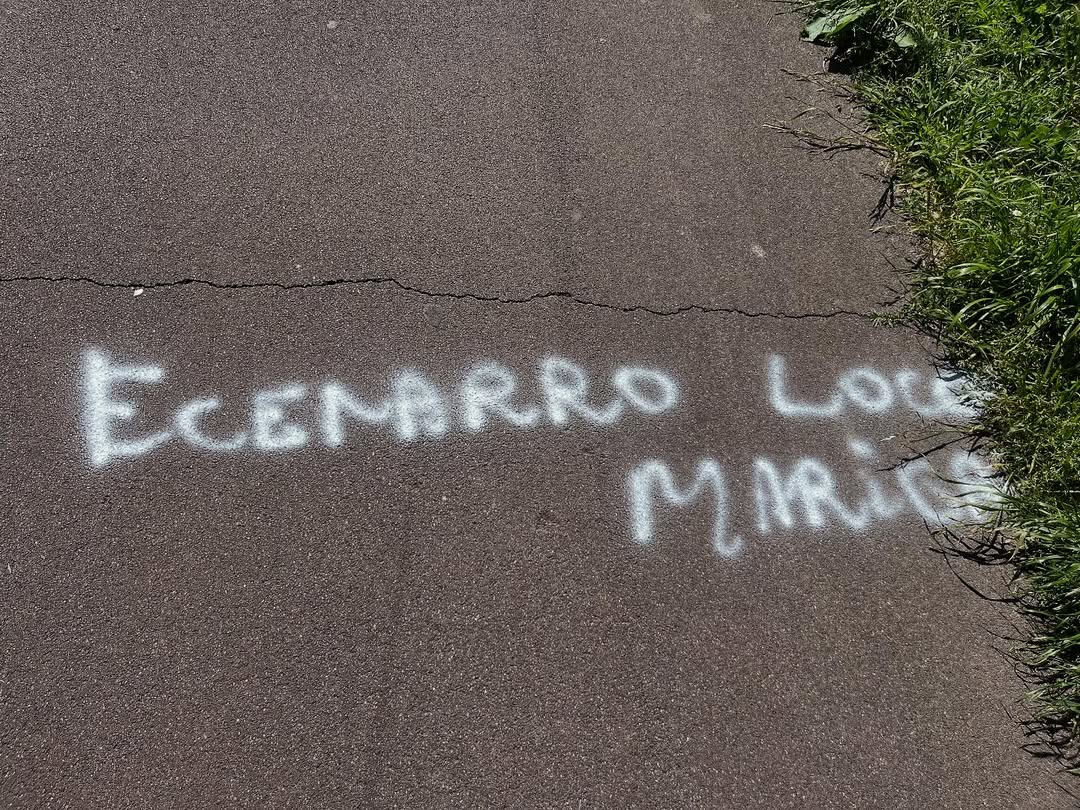The public doesn't always mean transparent
- In Hego Euskal Herria, water supply management is supposedly well shielded from private agents, unlike what happens in the Spanish state. However, a simple analysis of the risk of privatisation has shown that the management of public institutions is not necessarily a guarantee of the values of advertising. In particular, in Bizkaia, many question the way in which the Bilbao Bizkaia Water Consortium operates, as well as its vocation for expansion throughout the territory.

Through a brief report published in May of this year, the Spanish association of public water suppliers, AEOPAS, wanted to warn of the risk of privatization of several public enterprises in the water supply sector. The study consisted of three operators from the Basque Country, two of whom, the vitorian AMVISA and the Bilbao Bizkaia Water Consortium, were in the risk podium, second and third respectively.
After analyzing several risk factors, AEOPAS presented the results on a scale from 0 to 5. The top three operators on the list were in a range greater than 3, i.e. in an area with a “high risk of privatisation”. In particular, the authors of the report allocated 3.18 points to AMVISA and 3.05 points to Bilbao Bizkaia.
In the case of AMVISA, to say that the spectre of privatization circulates in the environment should not surprise anyone, as the background is very clear. In autumn 2012, Javier Maroto announced his intention to partially privatize the public operator supplying water to Vitoria-Gasteiz. The mayor said that under no circumstances would the city council lose control of AMVISA, as a maximum of 49% would be placed in private hands, but that did not reassure opponents of the project, including opposition parties. The expert in this area, Pedro Arrojo, explains that the absence of the majority of the property does not prevent private companies from having real power in water operators, as long as the management remains in their hands. The fear of a significant increase in the rate also played a prominent role in the debate.
Vocation of advertising and yet...
The Maroto plan was not implemented, but it was close to privatizing AMVISA. In any case, it can be said that in the civil society of Hego Euskal Herria has strong roots in the belief that water management should be public. In a way, it's an unwritten law. This is also believed by AEOPAS, and in spite of this, the Bilbao Bizkaia Water Consortium is among the most vulnerable to losing public character. How do you explain it?
For the preparation of the above-mentioned report, AEOPAS analysed three indicators: transparency, institutional risk and economic risk. In the transparency section, Bilbao Bizkaia obtained a score of 2.85 points on the scale from 0 to 5 and in the institutional risk score of 2.50. In this second area, operators and related political authorities, among others, took into account statements in favour of public privatisation.
The Secretary General of AEOPAS, Jaime Morell, acknowledges that the Bilbao Bizkaia Water Consortium has not distinguished itself especially in such statements, while the leaders usually give a message of public management. And so he responded to ARGIA, when we asked him directly on the subject, a representative of the communication area of the consortium: Bilbao Bizkaia has no intention of privatising. “This issue is not on our agenda, nor does it arise.”
Too much subcontracting: public, less public
“There have been no privatizations in Euskadi like those in other parts of the State, that is, it has not been granted directly to a private company,” says Jaime Morell, “what we have detected, in the case of the Bilbao Bizkaia Water Consortium, is a fairly high percentage of outsourcing”. According to the secretary of AEOPAS, if subcontracting takes on a significant weight – in the case of Bilbao Bizkaia it is around 60% – control and transparency are weakened, as well as the quality of the service, “despite the strict conditions imposed by the administration on the company”. Morell considers it normal that some external contracts should be made, but the service should be provided almost entirely from the public sphere.
In the area of economic risk analysed in its report by AEOPAS, the volume of contracts to external companies is one of the most important factors. Jaime Morell explains that oftentimes having a significant percentage of subcontracting is the concession portal to a private agent. “However, I do not believe that in the Basque Country they dare to take that step.” But he warns: “Being a public consortium that only manages contracts can be considered, in some way, a secret privatisation.”
In the absence of detailed information, the Secretary-General of AEOPAS is convinced that the Bilbao Bizkaia Water Consortium would receive the offers from the world’s largest companies to obtain the grant of the management. These companies are, in short, the ones that the consortium hires for various works, especially the Spanish transnational Acciona.
Concentration as an objective
In the economic risk section of the AEOPAS report, Bilbao Bizkaia has a significant number of points: 3.6. However, this is not the only reason why many subcontracting takes place, but there are other factors that make the Biscayan consortium attractive to companies in the sector. “We are very clear about the conditions to privatize a public operator: a large volume of business, under control of income and debt, areas with a large population... In Bizkaia there is all this.”
Morell has mentioned areas of large population. As for the population supplied, Bilbao Bizkaia is the largest water consortium in the Basque Country, and wants to be even larger. Anyone wishing to do so can read in the foreword of the organization ' s statutes a part of the history of its dissemination: The consortium was created in 1967 by Bilbao and nineteen municipalities in the Bilbao area. In the 1990s, other peoples of the country began to integrate, until today.
Year after year, more and more Biscayan municipalities have become members of the consortium. It currently consists of 80 municipalities, together with the Provincial Council of Bizkaia and the Basque Government. In total, 90% of the Biscs live in one of the localities of the water consortium to serve Bilbao and its surroundings. But the objective, at least that of the institutions that are in the hands of the PNV, is to reach 100%.
The Member, committed to a single consortium
The Deputy General of Bizkaia, Unai Rementeria, showed last July in his investiture speech the following compromise: “We will help ensure that all Biscayan people have a water and sanitation service of the same standard quality and effectiveness.”
The meaning of this phrase is much better understood after reading the agreement signed a few years ago between the Provincial Council of Bizkaia and the Bilbao Bizkaia Water Consortium. Under this agreement, the Member will try to have a single consortium, which will have to be implemented jointly. And not only that. Between 2008 and 2015, the Bilbao Bizkaia Water Consortium received EUR 316 million for the financing of infrastructure works.
What is missing from the Bilbao Bizkaia Water Consortium for all municipalities in the province to pick them up on their lap? As can be seen from the map of the LATERAL/INFERIOR/PROXIMAL LEAF, half of the 32 municipalities that are not in Bilbao Bizkaia form the Busturialdea Water Consortium. In the previous legislature, with the majority of EH Bildu, they faced the pretensions of unity of the Provincial Council, of the Basque Government and of Bilbao Bizkaia, but since the elections in May it is again the Jeltzales that dominate Busturialdea, and it was only a long time ago that the whole region was integrated into Bilbao Bizkaia and fulfilled the will of the Mayor Consortium. The greatest obstacle to the establishment of a single consortium in the country can be regarded as missing.
Iratxe Arriola, who was president until May, complains that during the four years of her term of office many subsidies have been refused to the Busturialdea consortium, thus preventing the development of some essential infrastructures, as a measure of pressure to force Bilbao to join Bizkaia. Arriola has pointed out that the dream of the PNV is that not only in Bizkaia, but throughout the CAV there is only one consortium. “That wouldn’t be bad in itself if proper public control was made, but Bilbao Bizkaia works with parameters of a private business.”
Next debate: Who should pay for the investments?
Iratxe Arriola accuses the Bilbao Bizkaia Water Consortium of being opaque and acting from a mercantilist perspective, treating citizens as mere customers. “Now, moreover, they want to increase the depreciation of investments in invoices, which can lead to an increase in the rate,” he explained, “but in a public service the cost of investments should not affect users; otherwise, what is the difference between public and private?”
At the plenary session of the Bizkaia General Meetings on 25 November, MEP for Sustainability and the Natural Environment, Elena Unzueta, defended the idea of a single water consortium, underlining the benefit of homogenizing the service and harmonising the rate. Unzueta argued that it was almost a necessity to have a single operator, as municipalities will not be able to meet the requirements laid down by European legislation on their own.
The Basque Government is studying how to transfer this legislation to the CAPV, and in particular, the decree that Lakua wants to carry out foresees an intense debate on the issue raised by Iratxe Arriola: whether or not it is a matter of making the public pay the investments made through tariffs. “The Bilbao Bizkaia Water Consortium says that there is no need to worry, because without large fee increases they will be able to deal with 95% of the investments, but I am not so clear. Why then so much subsidy? There is a risk that the new decree will greatly increase the rate.” SCHMIDHUBER, Member of the Commission. — (DE) Mr President, ladies and gentlemen, I should like to begin by congratulating Mr Schmidhuber on his excellent report. This was expressed by Biscayan Juntero Mikel Kormenzana at the session of the General Meetings on 25 November.
Excessive dependence on zadorra
Kormenzana herself has told us that another of the evils of the Bilbao Bizkaia model is excessive centralisation. Since most of the water comes from the Zadorra system, one aquifer overexplodes and discards the others, and with them small local infrastructures “to reduce costs”. Most of the water reaches Bizkaia from Álava and becomes drinkable in a single plant. According to Iratxe Arriola, transporting most of the water through a single conduit is dangerous to health. “In the event of a failure in this tube, 70% of the Biscay would be left with water, and also with no short-term alternative, because the existing local infrastructure is not maintained.”
Time will tell what will happen to the more than 50 water catchments currently used in Busturialdea, following the travel of sixteen municipalities to the Bilbao Bizkaia Water Consortium.
1993ra arte 25 udalek osatu zuten Bilbao Bizkaia Ur Partzuergoa, denak Bilbotik hurbilekoak. Harrezkeroztik erakundea herrialdeko beste eskualde batzuetara zabaltzen ari da etengabe, eta dagoeneko 80 udal daude bertan. Bizkaiak dituen beste 32 udaletatik, hamaseik Busturialdeko Ur Partzuergoa osatzen dute. Beste hamabost beren kasa dabiltza; batzuek enpresa pribaturen batekin daukate kontratua –pare batek Bilbao Bizkaiarekin berarekin hitzarmena du, zerbitzua jasotzeko–, beste batzuk tokiko ur-baliabideak ustiatuz moldatzen dira… Gehienek presioa dute Bilbao Bizkaian sartzeko, eta oso litekeena da askok etorkizunean hala egitea.Busturialdeko Partzuergoak ere Bilbao Bizkaian integratzeko nahia adierazi du, azken hauteskundeen ostean EAJk gehiengoa berreskuratu eta gero. Kasu berezia da Ermua, Gipuzkoako Ur Kontsortzioko kidea baita duela urtebete.
Hego Euskal Herria momentuz joera horretatik kanpo geratu bada ere, pribatizazio haizeek gogor jo dute, oraintsu arte behintzat, Espainiako Estatuko ur-horniketaren sektorean. Uneon operadoreen %10 besterik ez dira pribatuak, baina populazioaren %50en beharrak asetzen dituzte, handienetako batzuk baitaude tartean.
Jaime Morell AEOPASeko idazkari nagusiaren esanetan, erregulazio faltak eragiten du hala izatea: “Bete beharreko baldintza bakarra, Europar Batasunaren zuzentarau batek ezarria, etxeetara iristen den urak kalitate jakina izatea da. Hortik landa, norberak nahi duena egin dezake”.
Zerbitzuaren ezaugarriengatik, ur-hornidura pagotxa da enpresa pribatuentzat. Batetik, nahi eta nahi ez monopolioa da, “ezinezkoa da-eta zerbitzu bera leku berean bi enpresak edo bi erakundek ematea”. Bestetik, herritar guztiek derrigorrez behar duten ondasuna da ura. Horregatik daude hornidura pribatizatzeko presio handiak. “Ur edangarria eskura izatea giza eskubidea da, baina erraza da eskubidea merkantzia bihurtzea, eta herritarra bezero”, dio Morellek.
Munduan, uraren kudeaketa publikoa da gehienbat: %85 inguru (2013ko datua). Kopuru horietan dabil Hego Euskal Herria ere. Baina 80ko hamarkadan sektore pribatua sustatzeko politikak garatzen hasi ziren, eta harrezkero haren presentzia igoz joan da. Hori bai, gestio pribatua orobat kalitate eskasagokoa izaten da publikoa baino, eta kasu batzuetan horrek eragin du administrazio publikoek, sarritan herritarren presioaren ondorioz, aurrez pribatizatutakoa berreskuratu izana.
Hego Amerika aitzindaria izan zen publikotasuna berreskuratzen. Oraintsukoagoak dira Europako zenbait adibide. Ezagunenak, hirien tamainagatik batez ere, Paris eta Berlin dira. Euskal Herrian aipatzekoa da Ermuko kasua, Bizkaian. Iaz, herritarren mobilizazio ugari eta gero, Udaletxeko Osoko Bilkurak erabaki zuen 24 urtez herriko ura kudeatu zuen Aquarbe enpresa pribatuari kontratua eten eta Gipuzkoako Ur Kontsortzioan sartzea. Aurtengo urtarrilaren 1ean egin zen aldaketa.
12:30etik 13:20era arte, sare elektrikoa erori egin da Iberiar Penintsula osoan, baita ere Frantzian, eta Europa Mendebaldeko leku askotan ere bai. Oraindik ez da leku guztietara itzuli; sei edo hamar ordu inguru beharko direla esan dute.
Kalteak eragin ditu leku guztietan,... [+]
Maiatzaren 22tik 23ra bitartean deklaratu beharko dute auzipetuek. Gazteek salatu dute instituzioak "geroz eta gehiago" ari direla mugatzen protestarako eta mobilizaziorako eskubide politikoa, eta 'Bajadikako 27ak' izenarekin sortu dute plataforma bat. Maiatzaren... [+]
Felipe Bidart Iparretarrak taldeko kide ohiak Kazetari azaldu dioenez, "borrokan erori diren militanteak oroitarazteko" xedea du margolanak. Xabi Tapia Xabxab artista urruñarra da haren egilea, eta Baigorriko Lagundu elkarteak antolatuta egin dute aurkezpen... [+]
Ziburuko Liburu eta Disko Azokaren 6. edizioa ekainaren 7an izango da. Girotzeko eta azokaren eragina inguruko herrietara zabaltzeko, aurreko asteetan zehar sei ekintza kultural antolatu dituzte Baltsan elkarteak eta ARGIAk elkarlanean. Lehena martxoaren 30ean izango da,... [+]
Maiatzak 8an abiatu eta ekainaren 3ra arte luzatuko da epaiketa. Guztira 35 espetxe urteko eta 200.000 euroko zigorra eskatu ditu fiskalak auzipetuentzako.
Harriduraz irakurri dugu prentsan Aritz Otxandianori etxean bertan bengalekin egindako erasoaren albistea. Berak sare sozialetan eman zuen gertatutakoaren berri. Bai bera, bai bere adierazpenak jasotzen dituzten hedabideak ahalegindu dira eraso hori makro-berriztagarriei buruzko... [+]
50 urte bete dira Polizia frankistak Mikel Gardoki Azpiroz ETApm-ko kidea tirokatuta hil zuenetik. Egiari Zor fundazioko kideek eta Gardokiren kide Juan Miguel Goiburu Mendizabal 'Goiherri'-k hartu dute parte ekitaldian.
PSOEren hainbat egoitza eta armagintzarekin lotura duten hainbat enpresa seinalatu dituzte, hala nola, ITP Aero, Dassault eta Lauak.
Astelehen honetan egingo dituzte Kanadako Komunen Ganberarako hauteskundeak, Trudeau lehen ministro ohia ordezkatu duen Mark Caneyk data aurreratu ostean. Liberalen lidergo aldaketak kontserbadoreei aldea nabarmen murriztea eragin du, eta inkesta gehienek bozetan garaile irtengo... [+]
Udalerri Euskaldunen Mankomunitateak abizenen grafia euskaratzeko kanpaina abiatu du. Adin txikiko seme-alabak dituzten gurasoei egiten zaie deia bereziki, gurasoek deitura euskatuz gero, automatikoki 18 urtez beherako seme-alaba horiei ere euskaratuko baitzaie.
Sare sozialetan argitaratutako argazkiaren bidez ezagutarazi du erasoa Ordiziko alkate Adur Ezenarrok. Bere sexu izaerarekiko "harrotasuna eta ohorea" berretsi du, eta azken aldiko "oldarraldia" salatu du.
















